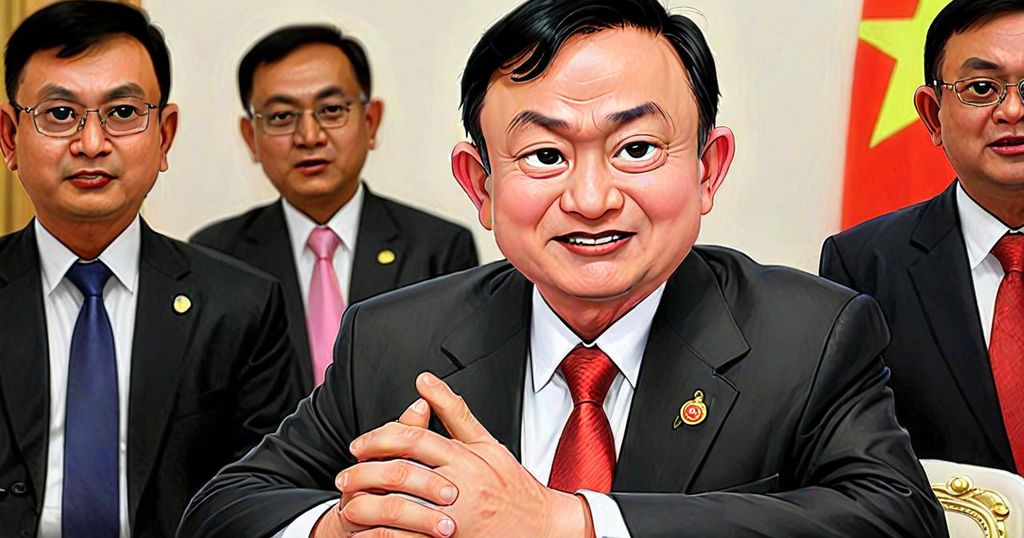Former Prime Minister of Thailand, Thaksin Shinawatra, has recently emerged as a possible mediator in Myanmar’s ongoing civil war. However, concerns have been raised about his motivations for involvement, as they may be influenced by his political and financial interests, potentially compromising his credibility as an impartial negotiator.
Shinawatra’s recent meetings with representatives of Myanmar ethnic armed groups and the National Unity Government (NUG) have sparked questions regarding his true intentions. Despite being considered a potential mediator, it is imperative to analyze his prior personal and political connections to Myanmar’s military leaders, as these ties could impact his ability to act as a neutral intermediary in peace talks.
In his capacity as the de facto leader of the ruling Pheu Thai Party, Shinawatra holds substantial influence in Thai politics. His close relationship with Thailand’s Foreign Minister, Maris Sangiampongsa, raises concerns about potential ulterior motives for his involvement in Myanmar’s affairs. It is essential to recognize that Shinawatra has a history of inserting himself into internal conflicts of neighboring nations, often as a means of advancing his own domestic political standing.
Shinawatra’s previous involvements in Cambodia and Sri Lanka, where he served as an economic advisor, cast doubt on his true intentions. Furthermore, his prior encounters with representatives of insurgent groups in southern Thailand did not result in significant progress towards peace. These past actions call into question the sincerity of his recent participation in Myanmar’s civil war.
Beyond his political motivations, Shinawatra’s financial interests in Myanmar also raise concerns. His reported business ventures in the country, including property ownership and oil and gas interests, indicate a significant financial stake in the region. Additionally, his role in the Dawei port project, which entailed contentious land acquisitions and construction in areas held by Myanmar’s ethnic armed groups, underscores the complex interplay of his political and financial pursuits.
Shinawatra’s history of contentious statements and actions, such as holding victims accountable for military atrocities and his close ties with Myanmar’s military leadership, further diminish his credibility as an impartial mediator in Myanmar’s conflict. These factors contribute to doubt regarding Shinawatra’s potential to facilitate meaningful and unbiased dialogue between the warring factions in Myanmar.
Given these considerations, it is vital for stakeholders and observers to critically evaluate Thaksin Shinawatra’s involvement in Myanmar’s civil war. While the notion of his mediation may initially seem promising, it is crucial to scrutinize his underlying motives and past actions. Ultimately, the emphasis should remain on fostering genuine and sustainable peace initiatives in Myanmar, devoid of the influence of individuals with vested interests and questionable credibility.
Shinawatra’s intervention in Myanmar’s civil war has the potential to impact not only the course of the conflict but also broader geopolitical dynamics involving Thailand’s relations with Myanmar. Therefore, his involvement warrants meticulous assessment and scrutiny to ensure that any peace-building efforts in Myanmar are rooted in genuine goodwill and impartiality.

Leave a Reply